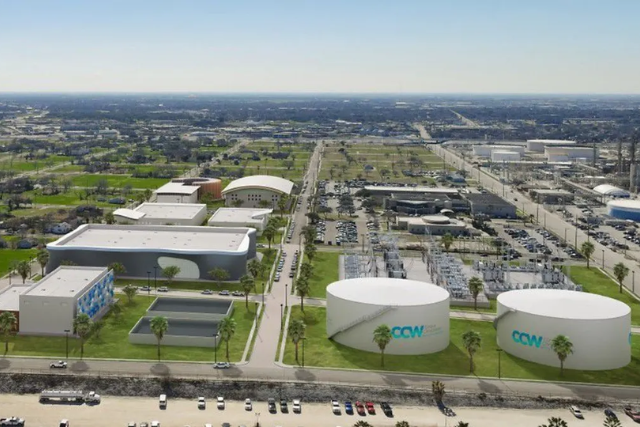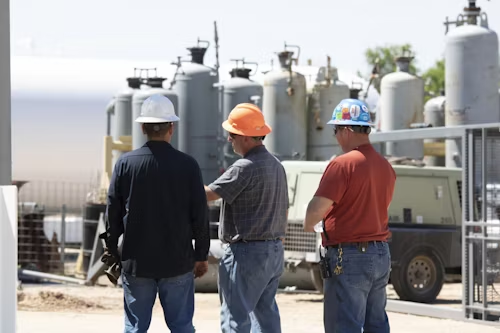
A $1.189 billion seawater desalination project in Corpus Christi, Texas, has been paused until August 26, after city council members declined to approve a key contract amendment with construction and engineering firm Kiewit Infrastructure South Co. The decision follows rising concerns over the project's ballooning cost, future funding, and the availability of alternative water sources.

Originally projected to cost $750 million when Kiewit was selected for the project in October 2024, the Inner Harbor Seawater Desalination Treatment Plant is intended to serve as a drought-resilient water source for the region's growing population. However, the project's price tag has since escalated to nearly $1.2 billion, prompting some council members to seek more time before committing to the next design phase.
The council had been scheduled to vote on a $50 million contract amendment during its July 29 meeting, which would have allowed Kiewit to advance the design from 10% to 60% completion. Instead, after a prolonged debate, council member Eric Cantu introduced a motion to pause the project for 30 days, giving the Texas Water Development Board time to respond to key questions about funding and flexibility.
In a letter obtained by 3NEWS, Kiewit warned that any delay could lead to increased construction costs and a longer project timeline, raising the stakes for city officials who are already facing public scrutiny for the nearly $100 million spent on the project to date.
Meanwhile, four city council members have asked the Texas Water Development Board whether funding earmarked for the Inner Harbor site could be reallocated to other water projects should Corpus Christi decide to walk away. The letter also seeks clarification on loan repayment terms and the availability of additional state and federal grants to support alternative water strategies.
The push for the desalination plant stems from Corpus Christi’s worsening water outlook. The city is currently in a Stage 3 drought, under which most outdoor water use is restricted, according to the city’s water utility. While desalination is one possible solution, critics argue that it is costly, energy-intensive, and environmentally disruptive—especially in how it intakes seawater and discharges brine.

"Processing saltwater for drinking water is relatively costly and requires significant energy, and the process disturbs the environment both when the plant takes in water and when it discharges brine," E&E News reported.
Despite this, desalination has gained traction in drought-prone states like California and Texas. However, the Corpus Christi case reveals growing tensions between the need for long-term water security and the rising economic and political risks of such large infrastructure investments.
The delay in Corpus Christi comes as Texas faces a broader water infrastructure crisis, marked by aging treatment facilities, leaky pipes, and growing demand in the face of persistent droughts. Later this year, Texas voters will decide on a proposed constitutional amendment to allocate $1 billion annually for 20 years toward upgrading water infrastructure, expanding conservation efforts, and developing new water supplies.
The Corpus Christi plant, if ultimately approved, is expected to come online in 2028, but that timeline is now in question. With mounting costs and increased pressure to explore alternative, less costly water supply strategies, the city’s long-awaited desalination solution remains uncertain.
For now, the project’s future rests on how the city council evaluates both financial and environmental trade-offs in the coming weeks. August 26 will be a pivotal date—by then, the Texas Water Development Board’s response could determine whether the city proceeds, scales back, or abandons the plan altogether.
While officials remain divided, one thing is clear: Corpus Christi’s water challenges are growing, and any solution—whether desalination or otherwise—will require both fiscal discipline and long-term planning.
Originally reported by Julie Strupp in Construction Dive.